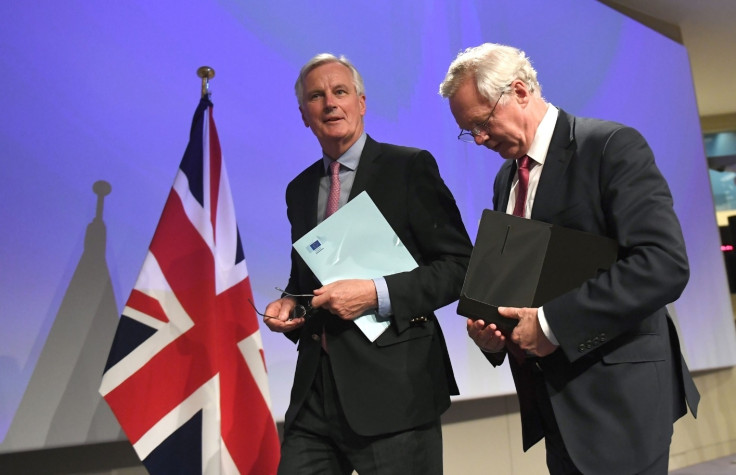Brexit negotiations: Davis calls for 'flexibility and imagination' in a bid to unblock talks
Discussions open as UK and German business leaders jointly call far "business critical" issues such as workers' rights, tax and customs arrangements to be tackled.

Britain's chief negotiator has called on the European Union to show "flexibility and imagination" as the third round of Brexit talks begin in Brussels, amid entrenched views on both sides.
Brexit Secretary David Davis wants to broaden discussions to include trade.
But the EU wants further progress on the issues of citizens' rights, the Irish border and the "divorce bill" before talks can widen.
The latest round of four-day talks between the UK and the EU comes as business leaders in Britain and Germany jointly call for "business critical" issues such as workers' rights, tax and customs arrangements to be tackled.
However, Michel Barnier, the EU's chief negotiator, is understood to be infuriated at Britain's refusal to put a figure on final bill it should pay the European bloc.
Britain has accused Brussels of "massively over-egging" its financial demands, estimated at between £50bn-£80bn.
The EU has also accused the UK of "magical thinking" on its solutions to providing a "frictionless" border in Ireland.
Davis hopes the series of papers produced by his Department for Exiting the EU over the past fortnight demonstrate that our divorce from the European Union is inextricably linked to our future relationship.
As he opens discussions, the Brexit Secretary is expected to say he wants to agree a deal which is in the best interests of both sides, and expects the four days of talks to be "constructive".
"For the UK, the week ahead is about driving forward the technical discussions across all the issues.
"We want to lock in the points where we agree, unpick the areas where we disagree, and make further progress on a range of issues.
"But in order to do that, we'll require flexibility and imagination from both sides."
Trade barrier concerns
Davis and Barnier will meet on Monday afternoon (28 August) to formally start the negotiations.
Officials will then meet in working groups to discuss the detail behind each side's proposals, before the round is closed by Davis and Barnier on Thursday.
The UK is set to leave the EU by the end of March 2019, following last year's referendum vote.
The British Chambers of Commerce (BCC) and the Association of German Chambers of Commerce (DIHK) said the current level of uncertainty was affecting trade in both countries.
The groups called for political leaders to "build an atmosphere of mutual trust and constructive dialogue", to deliver clarity and certainty for businesses.
BCC director general Dr Adam Marshall added: "The UK and the EU must begin work on transitional arrangements, particularly on customs, so that firms on both sides of the Channel have the confidence to make investment decisions."
DIHK chief executive Martin Wansleben said German companies were concerned that Brexit would have "a major negative impact", with more trade barriers such as extra bureaucracy, and stricter border controls, leading to higher costs.
The UK is the third largest market for the export of German goods, while Germany is the UK's second biggest market for exports of goods and services.
German firms employ an estimated 400,000 workers in the UK, while British firms employ around 220,000 workers in Germany.
© Copyright IBTimes 2024. All rights reserved.






